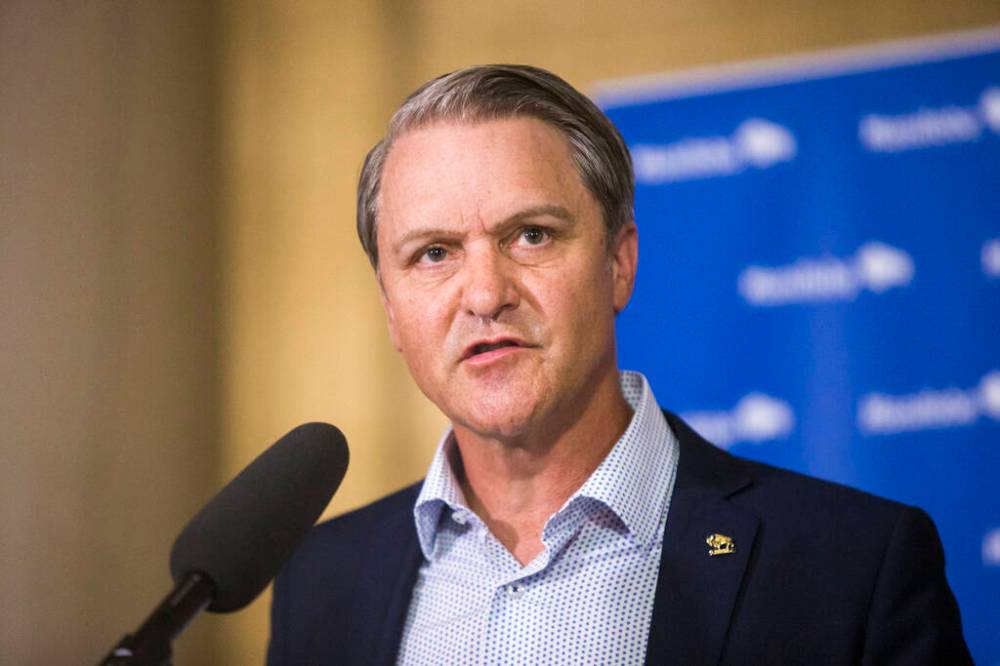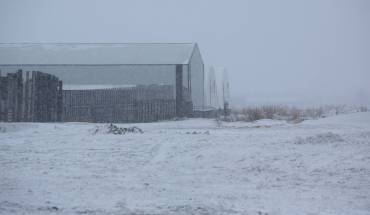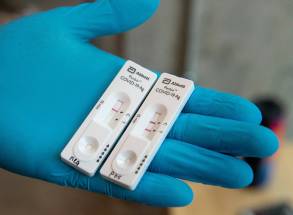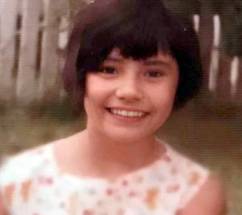Secret services Clandestine churches — created to evade COVID public health orders — popping up in farm sheds and machine shops in southern Manitoba
Read this article for free:
or
Already have an account? Log in here »
To continue reading, please subscribe:
Monthly Digital Subscription
$0 for the first 4 weeks*
- Enjoy unlimited reading on winnipegfreepress.com
- Read the E-Edition, our digital replica newspaper
- Access News Break, our award-winning app
- Play interactive puzzles
*No charge for 4 weeks then price increases to the regular rate of $19.00 plus GST every four weeks. Offer available to new and qualified returning subscribers only. Cancel any time.
Monthly Digital Subscription
$4.75/week*
- Enjoy unlimited reading on winnipegfreepress.com
- Read the E-Edition, our digital replica newspaper
- Access News Break, our award-winning app
- Play interactive puzzles
*Billed as $19 plus GST every four weeks. Cancel any time.
To continue reading, please subscribe:
Add Free Press access to your Brandon Sun subscription for only an additional
$1 for the first 4 weeks*
*Your next subscription payment will increase by $1.00 and you will be charged $16.99 plus GST for four weeks. After four weeks, your payment will increase to $23.99 plus GST every four weeks.
Read unlimited articles for free today:
or
Already have an account? Log in here »
Hey there, time traveller!
This article was published 09/12/2021 (1459 days ago), so information in it may no longer be current.
Christian worshippers are secretly holding church services in farm sheds and machine shops in southern Manitoba communities as a way to evade COVID-19 public health orders.
Held on private properties, the Sunday services, attended by dozens, and up to hundreds, have been organized to circumvent current public health rules, which require mask use and limit the size of religious gatherings if attendees are not fully vaccinated for COVID-19. Communities in the Southern Health region have some of the lowest vaccination rates in Manitoba, including Winkler and the RM of Stanley, where the services are reportedly being held.
“We have an idea (of where the shed churches are). We know of two for sure, maybe four,” said Jake Krahn, minister of Christian Faith Church, a Mennonite congregation located east of Winkler in the RM of Stanley.
“I’ve heard people say there are more than two.”

The Free Press has identified two locations, both in the RM of Stanley, that several sources say regularly hold worship services in farm shops without all participants wearing masks or gathering in small cohorts.
Neither of the property owners would confirm that their space is used for church services.
“If I do confirm it, then you confirm it in the paper,” said one in a brief telephone call.
The other property owner would not say if he is affiliated with the shed churches, also referred by some as private, independent churches, and said any news coverage would not help the fractured culture in southern Manitoba.
A Free Press reporter was contacted multiple times by anonymous male callers from southern Manitoba who made references to the reporter’s family, in what appeared to be an effort to stop the story from being published.
“Having reporters come around here to make headlines around Winkler or Morden churches is putting stress and anxiety on people.”
– Anonymous caller
“Having reporters come around here to make headlines around Winkler or Morden churches is putting stress and anxiety on people,” said one caller from Winkler, who did not provide his real name.
“I’m not getting the vibe that you have the interests of people at heart.”
Although it’s an open secret in Winkler and the surrounding RM of Stanley that these pop-up congregations are meeting, it’s unclear who preaches or how groups organize themselves to transform a big farm building into a place of worship equipped with a sound system and seating.
Attendees gather in large, insulated and heated farm buildings used for equipment maintenance, repair and storage. These metal-clad buildings are equipped with overhead doors large enough to accommodate big farm machinery. The buildings generally have one or two pedestrian doors and maybe a small window or two.
“There is a very wonderful message, there is some heartfelt singing,” said Tom (not his real name), who has attended a few times but would not answer specific questions about the services.

“There is no anti-government talk. Some are wearing masks and some aren’t,” said Tom, who refused to speak about his vaccination status.
There’s also differing views on the level of secrecy about these Sunday services, with some suggesting people driving by would recognize the vehicles parked on the properties on the flat prairie.
“I don’t think it’s a huge secret. I’ve understood they would exist,” said Rev. Dale Dueck, lead pastor of Winkler Evangelical Mennonite Church.
“Their leadership is not really vocal about advertising. It’s (through) word of mouth that people hear about it.”
More recently, the level of security at these locations has increased, suggested Krahn, because the participants know they are breaking the rules and are trying to avoid detection by law enforcement.
“I don’t think it’s a huge secret. I’ve understood they would exist.”
– Rev. Dale Dueck, lead pastor of Winkler Evangelical Mennonite Church
“I heard they attempt to hide vehicles behind outbuildings and they would park a vehicle across the driveway” just before the service starts, he said.
The province is actively enforcing its public health orders in the Southern Health region, said Justice Minister Cameron Friesen, adding inspectors count cars on church parking lots, monitor the number of people walking into a church on Sunday morning, or chat with church leaders about the rules.
But enforcement may not always result in tickets or fines, Friesen acknowledged.

“It’s very sensitive,” said the MLA for Morden-Winkler, about enforcement of public health orders for religious gatherings. “We’re also trying to send the message that we know how important it is for people to gather to meet their spiritual needs.”
Friesen would not comment on whether his department knows about shed churches or if it plans to investigate them.
“If there are some groups of people looking to meet in clandestine ways in undisclosed locations, it would be very challenging to monitor,” he said.
Although they may not be strictly following the rules, these private worship services offer comfort and support to Christians who may be struggling spiritually or mentally, suggested Tom, who attended several of these churches over the past 18 months in order to engage his school-aged children in worship.
“We’re not anti-mask and we’re not anti-risk,” said Tom, who blocked his caller ID during his 105-minute call with the Free Press.
“We’re taking a calculated risk to go to church.”
“It’s very sensitive… We’re also trying to send the message that we know how important it is for people to gather to meet their spiritual needs.”
– Justice Minister Cameron Friesen and MLA for Morden-Winkler
He also said attending what he calls a “legal” church during the pandemic doesn’t meet his family’s need for contact with others and spiritual enrichment.
“Any church that follows the letter of the law, you aren’t getting human interaction.”
Like others in the province, Winkler congregations have witnessed changes in attendance, whether virtual or in person, since the beginning of the pandemic. Some people may be staying home due to underlying health conditions or concerns for their safety, while others have found another place to go.
“All churches have been affected by reactions to public health orders and we’re all experiencing shifts because of that,” said Dueck of Sunday morning attendance at Winkler EM Church.
To accommodate the latest public health orders, his church has rearranged chairs, developed exit plans to ensure cohorts of 25 don’t intermingle, and asked people to wear masks for Sunday morning worship. Although their building at the south end of the city could accommodate more, only about 100 people attend on Sundays. Dueck wonders where his other parishioners attend church.
Under current public health orders specific to most of the Southern Health region, religious gatherings are limited to 25 people masked and physically distanced, unless the facility can be divided into separate spaces with cohorts of 25. Attendance is limited to 25 per cent of capacity to a maximum of 250 people. Gathering limits in churches do not apply if everyone is fully vaccinated.
“In our congregation, we’re doing the level best we can to make sure our services are there and to minister to our people as we can,” he said.
People who attend the clandestine churches are not the more conservative Low German-speaking Mennonites, but evangelical Christians who disagree with the government’s interference in their religious lives, said Krahn, a Winkler resident for the past 35 years.
“For us as church leaders, it’s disappointing,” he said. “They take some Bible verses and take them out of context for why they have to do it.”
One man, who was identified by several sources as a leader in one of these churches, wouldn’t confirm or deny his involvement, but said people attend because they feel they have the right to gather for worship.
“It should be self-explanatory,” said the man. “It would be freedom of worship.”
He said media reports about low vaccination rates in Winkler and the RM of Stanley, and rising cases in the Southern Health region, have caused divisions in Winkler and surrounding areas. He said further stories would only make the situation worse.
“The less reporting is done on Winkler, the more unified” we will be, he said.

That’s a familiar refrain for Winkler Mayor Martin Harder.
Harder and his council are encouraging kindness and compassion between fellow citizens with a media campaign and temporary signs around the city and in front of city hall with statements like: “Grace: Let’s get back to that.”
“There’s so much negativity. People need to get a different perspective on what this community is about,” said Harder, repeating his belief that Winkler is a great place to live.
“Quite frankly, we were sick of being in the limelight about COVID.”
Harder has heard the rumours about pop-up churches and wonders why Christians would meet secretly.
“In my opinion, churches are there to reach out and reach the world and when you seclude people and make it a one-issue thing, that’s wrong,” said Harder, a church-goer himself.
For their part, the need to gather for worship without restrictions remains the most important aspect of these private, independent churches, said Tom, who said he has also participated in small home groups during the pandemic.
“I want to praise God with my neighbours and move on,” he said.
fpcity@freepress.mb.ca
The Free Press is committed to covering faith in Manitoba. If you appreciate that coverage, help us do more! Your contribution of $10, $25 or more will allow us to deepen our reporting about faith in the province. Thanks! BECOME A FAITH JOURNALISM SUPPORTER

Brenda Suderman has been a columnist in the Saturday paper since 2000, first writing about family entertainment, and about faith and religion since 2006.
Our newsroom depends on a growing audience of readers to power our journalism. If you are not a paid reader, please consider becoming a subscriber.
Our newsroom depends on its audience of readers to power our journalism. Thank you for your support.
History
Updated on Thursday, December 9, 2021 7:11 PM CST: Corrects typo in subheadline
The Free Press acknowledges the financial support it receives from members of the city’s faith community, which makes our coverage of religion possible.













